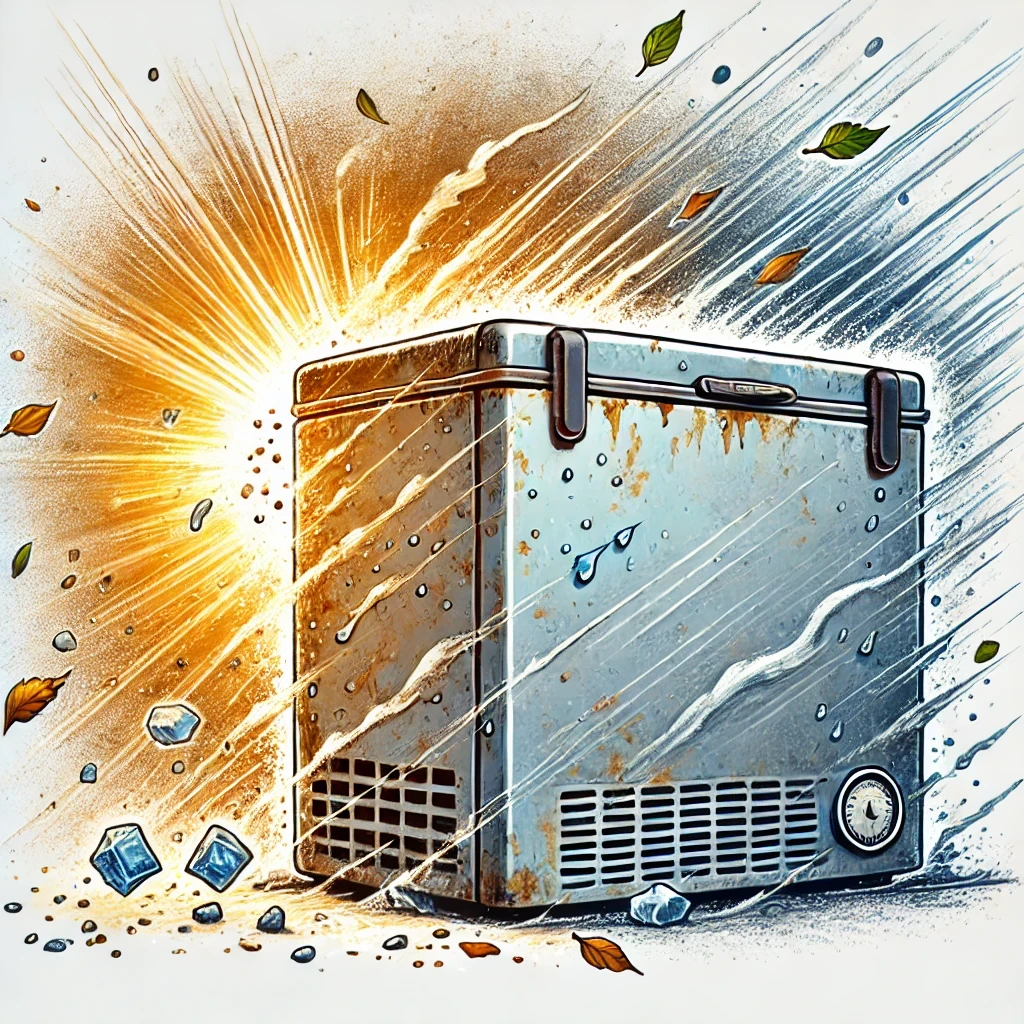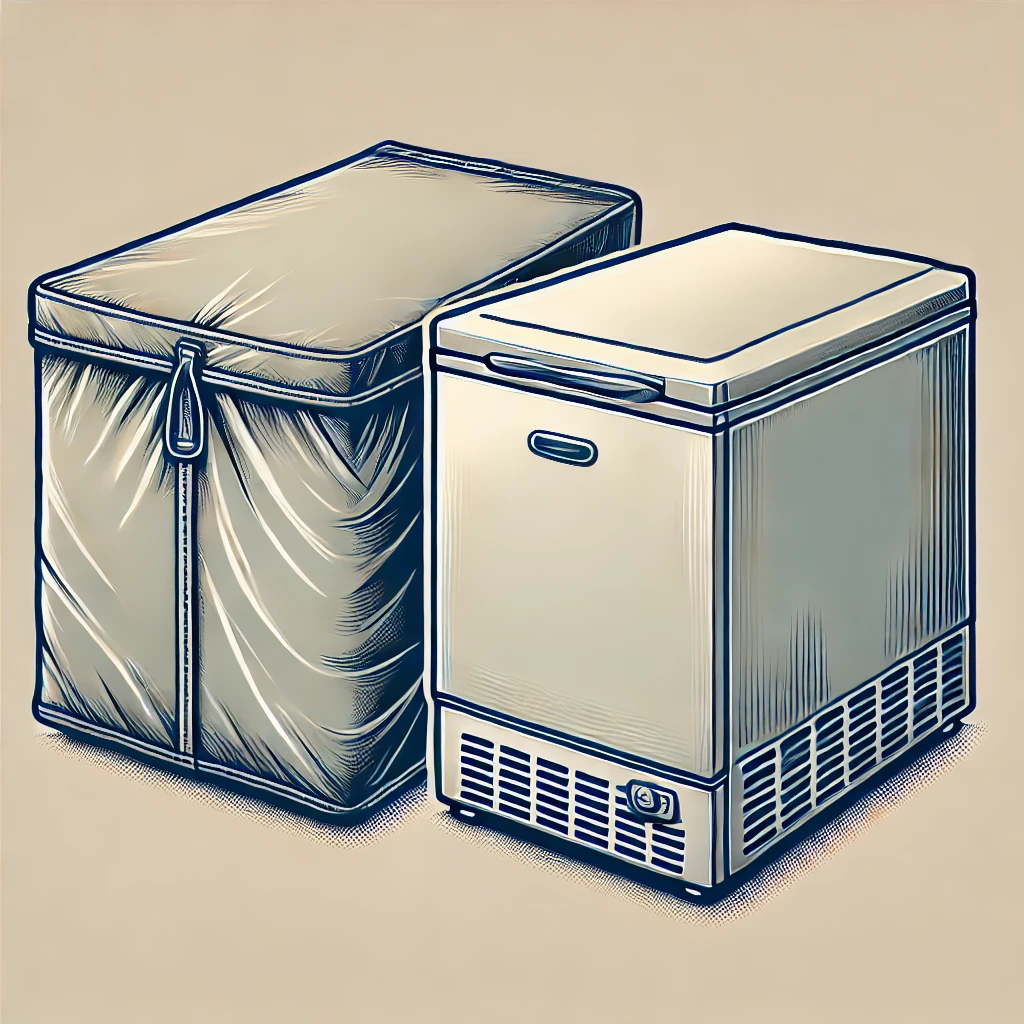
Storing a chest freezer outside may seem like a practical solution when indoor space is limited, but there are several factors to weigh before making that decision. Outdoor conditions are unpredictable, and a chest freezer, while designed to operate in a range of environments, is often vulnerable to the elements. Before you place a freezer outside, it’s important to understand the effects that weather, temperature, and exposure can have on its performance and longevity.
Key Factors to Consider When Placing a Freezer Outdoors
The primary concern with storing a chest freezer outside is the lack of control over the environment. The ambient temperature plays a critical role in how efficiently the freezer operates. Chest freezers remove heat from their inner cabinet, and they perform best when the external environment is cool and stable. This process becomes much harder if the freezer is exposed to the elements without any shelter.
For instance, extreme heat can cause the freezer to work harder, driving up energy costs and causing faster wear on the system. Similarly, during cold seasons, certain components may fail if the freezer is not equipped to handle freezing temperatures.
The Impact of Heat on Freezer Efficiency
A chest freezer is designed to remove heat from its interior to maintain a freezing temperature for the food stored inside. However, if you place the freezer in an area with high temperatures, such as a hot summer day or an area exposed to direct sunlight, the freezer’s compressor has to work overtime. Heat will constantly try to penetrate the freezer, forcing it to consume more energy and straining its components. Over time, this can reduce the lifespan of the unit.
In extreme cases, the freezer may struggle to maintain the necessary temperature, leading to spoilage of food items. It’s particularly critical to consider this if you live in areas like Arizona or other regions with high summer temperatures.
Other Environmental Factors That Affect a Chest Freezer Stored Outside
Aside from heat, other environmental factors such as rain, wind, and dust can significantly impact a freezer stored outdoors. Rain and humidity can lead to rust and corrosion, especially if the freezer is not sheltered or properly maintained. Dust accumulation is another concern, as it can clog vents and affect the efficiency of the compressor and cooling systems.
Moreover, high winds and airborne debris may not only physically damage the exterior of the freezer but could also lead to blockages in the cooling system. The accumulation of leaves or other debris around the unit can restrict airflow, causing overheating and eventual malfunction.
Additionally, exposure to salty air, particularly in coastal areas, can cause rapid deterioration of the freezer’s metal components, even those designed for outdoor use.
Tips to Protect a Freezer Stored Outdoors

If you must store your chest freezer outside, there are several steps you can take to protect it and ensure its long-term functionality:
- Provide Shelter: Always place the freezer in a shaded area or under a protective cover to shield it from direct sunlight, rain, and snow.
- Ensure Proper Ventilation: Leave ample space around the unit to allow for adequate airflow, which helps in preventing overheating.
- Regular Maintenance: Clean the vents and coils regularly to avoid dust and debris buildup. Inspect the unit for leaks, rust, or damage and address these issues promptly. Also, make sure you defrost your chest freezer often to keep its optimal performance.
- Weatherproofing: In extremely cold climates, unplug the freezer during winter months, as the ambient temperature will keep items frozen without the risk of damaging the unit.
- Use a Freeze Stat: Consider installing a freeze stat, a device that shuts down the unit once outside temperatures fall below a certain threshold, ensuring that the compressor isn’t damaged by cold conditions.
Conclusion: What to Consider Before Storing a Chest Freezer Outdoors
In short, while it’s possible to store a chest freezer outside, it’s not always advisable unless you’re in a region with mild temperatures and can protect the freezer from environmental hazards. Constant exposure to heat, moisture, and debris can compromise the unit’s performance and reduce its lifespan. If you want your freezer to run efficiently and last for years, it’s best to store it in a well-ventilated indoor space like a garage.
Taking these factors into account will ensure your chest freezer performs optimally without risking frequent repairs or replacements.
